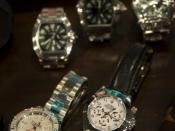China's new entrepreneurial class is growing -- and companies like McDonald's and KFC are vying to pick the best and brightest for their franchises.
In preparation for entering the World Trade Organization, China is adopting standardized franchise regulations. Now that China seems to be adopting the rule of law, all sorts of good and entirely predictable things are happening on the trade front. Among them: Western companies are no longer afraid they will lose their trade secrets and brands if they offer franchises. In fact, those companies now are actively seeking out Western-educated entrepreneurs in China to become franchisees.
An article in last week's Wall Street Journal profiles this new entrepreneurial movement. The Journal is subscription only, but luckily I found a reprint of the article with open access on the Bain & Company website. The first McDonald's franchisee in China, Meng Sun (a woman by the way) is quoted in the article as saying:
"Before, people in China couldn't imagine being an entrepreneur.
They only tried to build large state-owned companies," Ms. Sun says. "But now, it's getting better, as people see that even Bill Gates is an entrepreneur."
All of which goes to show that intellectual property rights and the rule of law that protects them are crucial to a thriving entrepreneurial culture. The reference to Bill Gates has special meaning, also. Recently he was lambasted for suggesting -- in a rather poor choice of analogies -- that those who want to limit intellectual property rights are something like communists. As clumsy as his comments were, and as twisted out of context as they were taken, there is a lot of truth to his words. He said:
"...I'd say that of the world's economies, there's more that believe in intellectual property today than ever. There are fewer...


